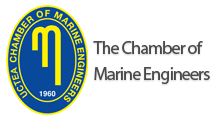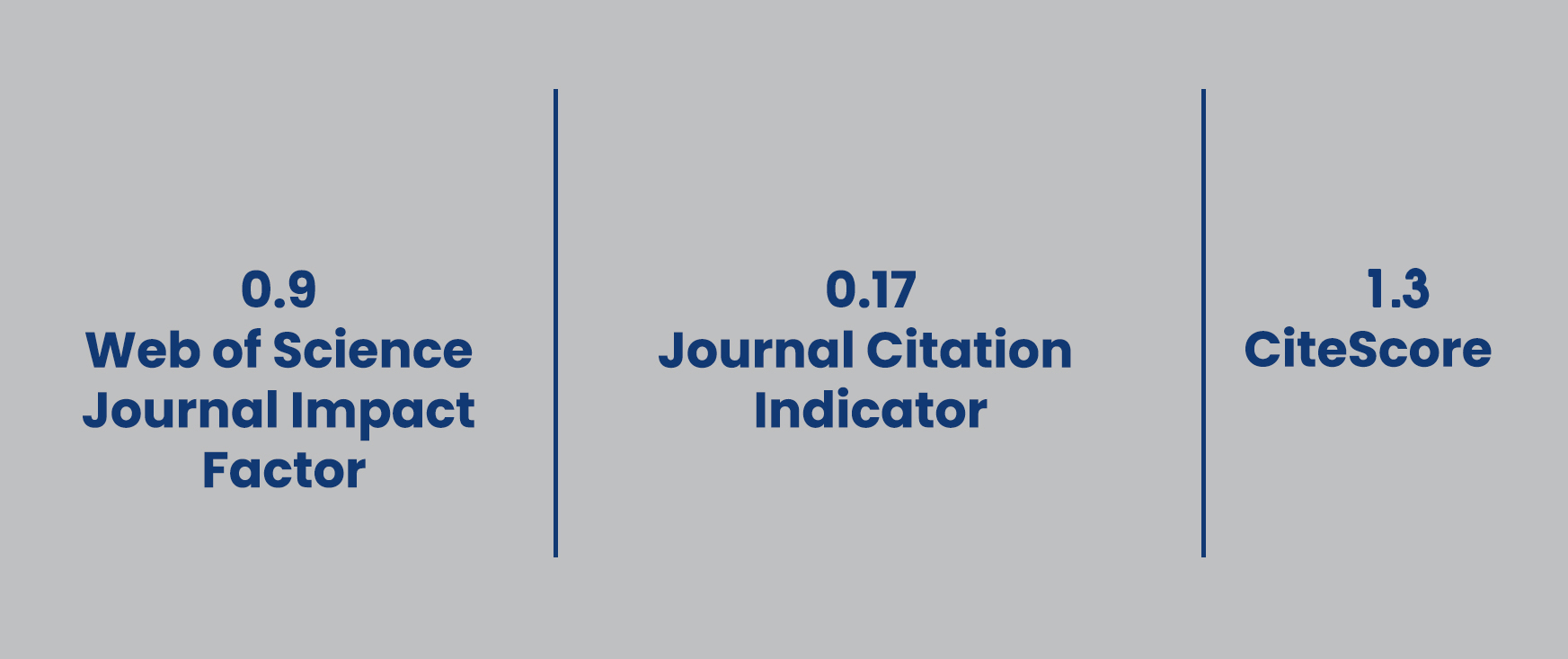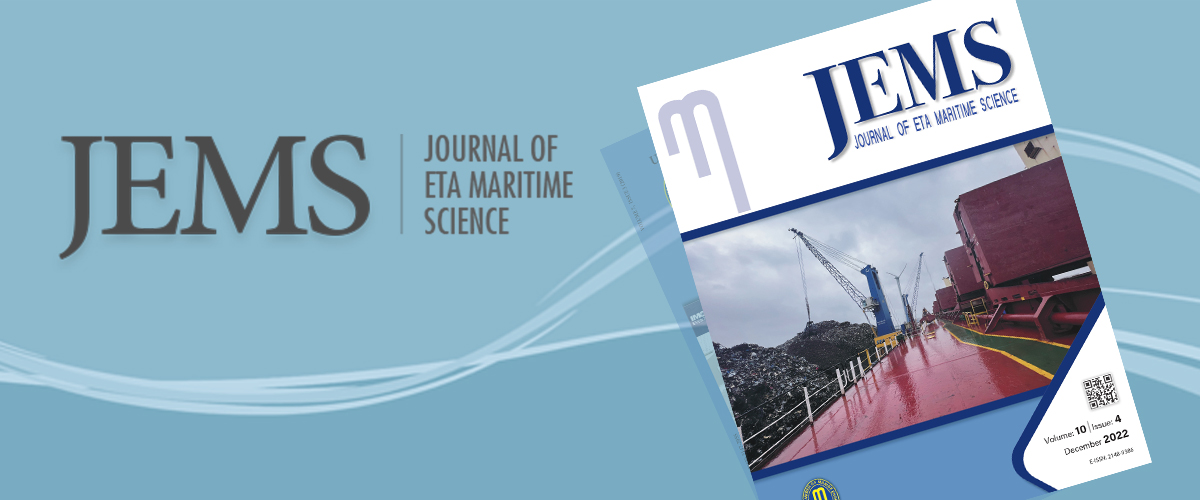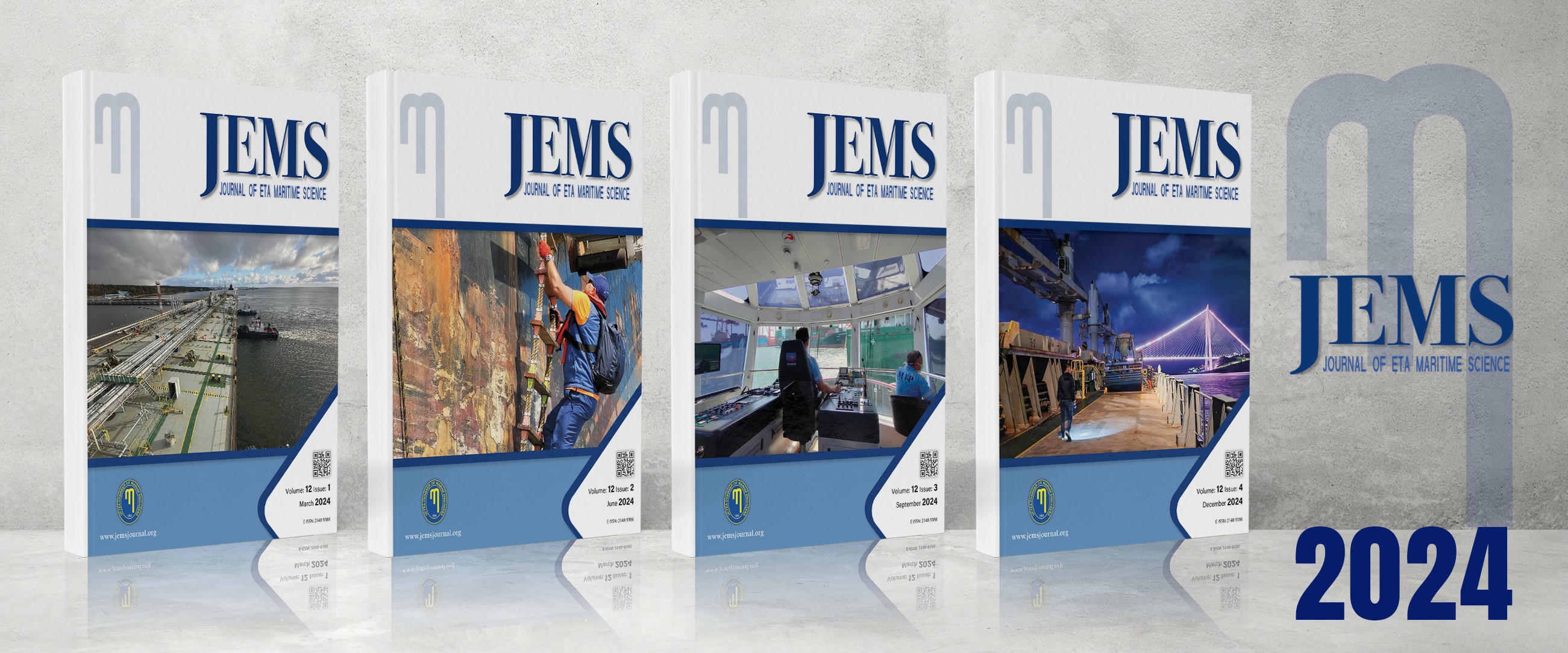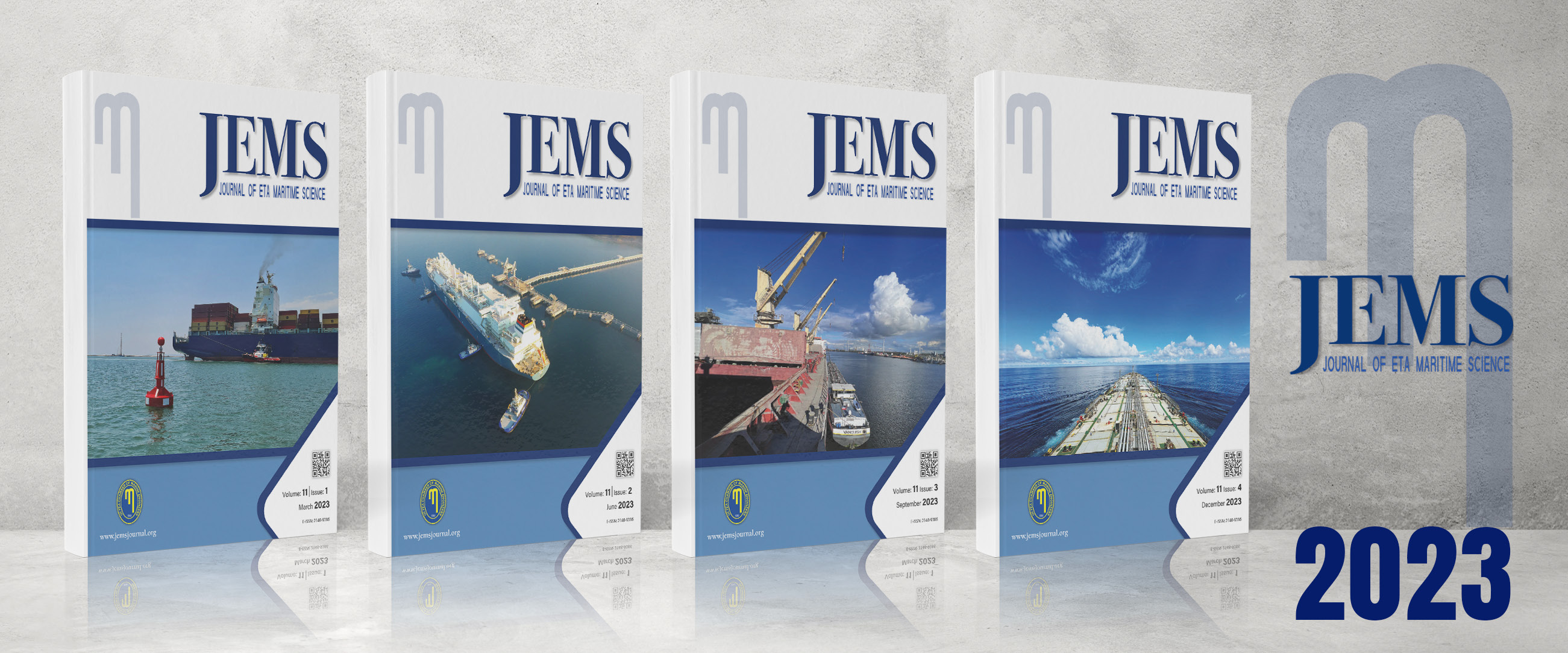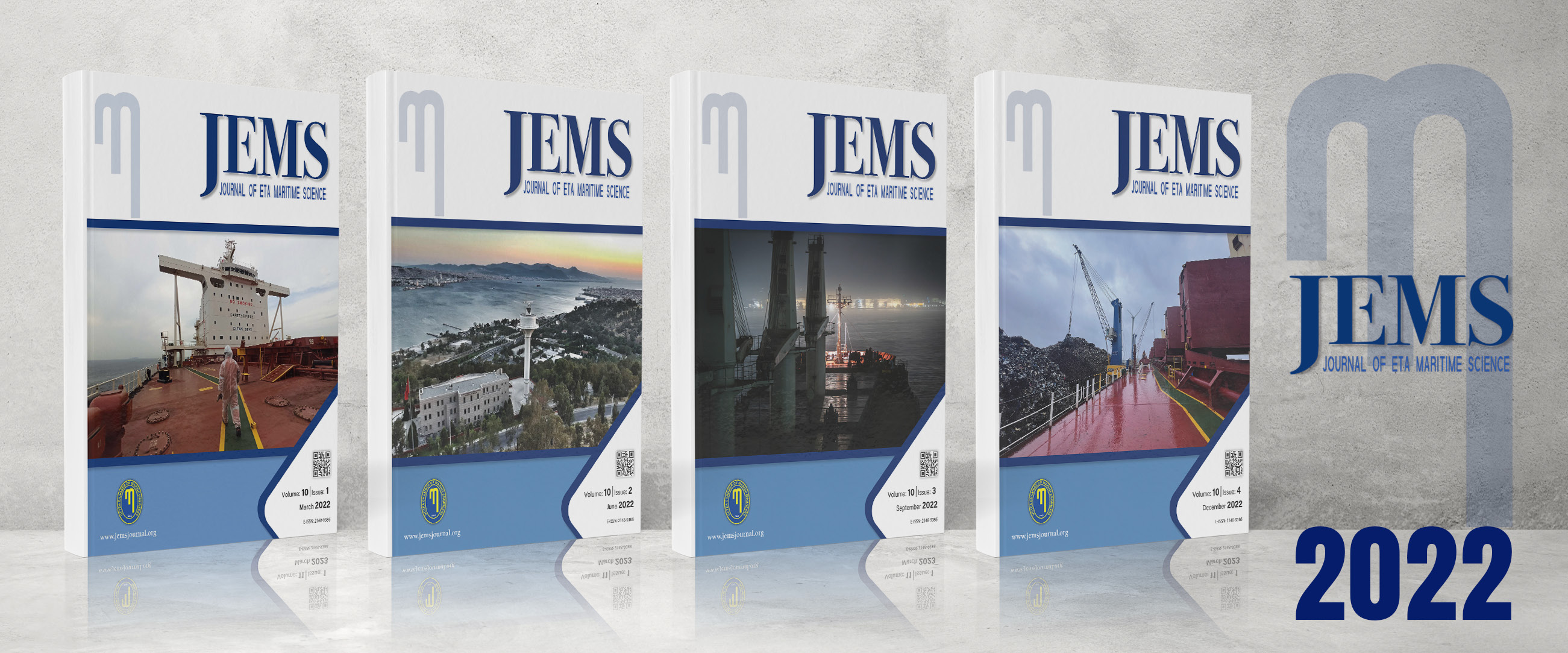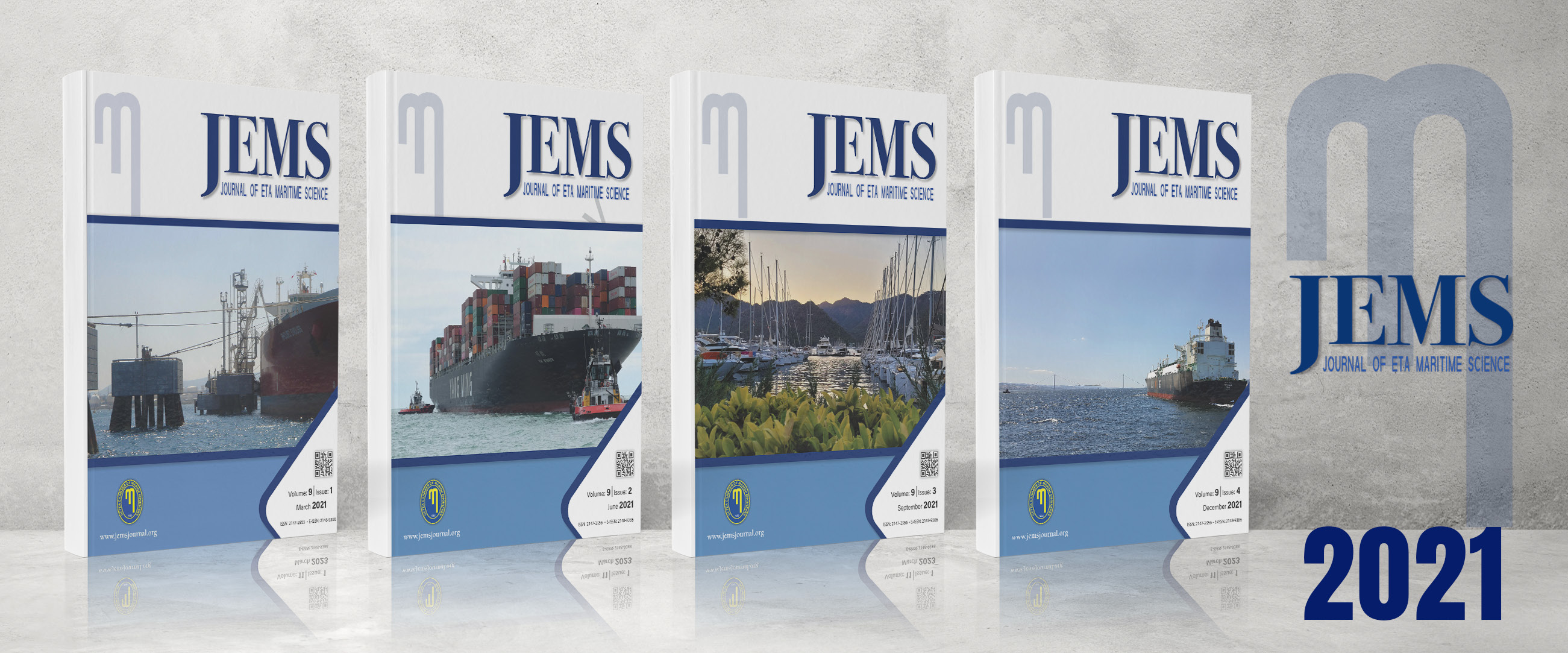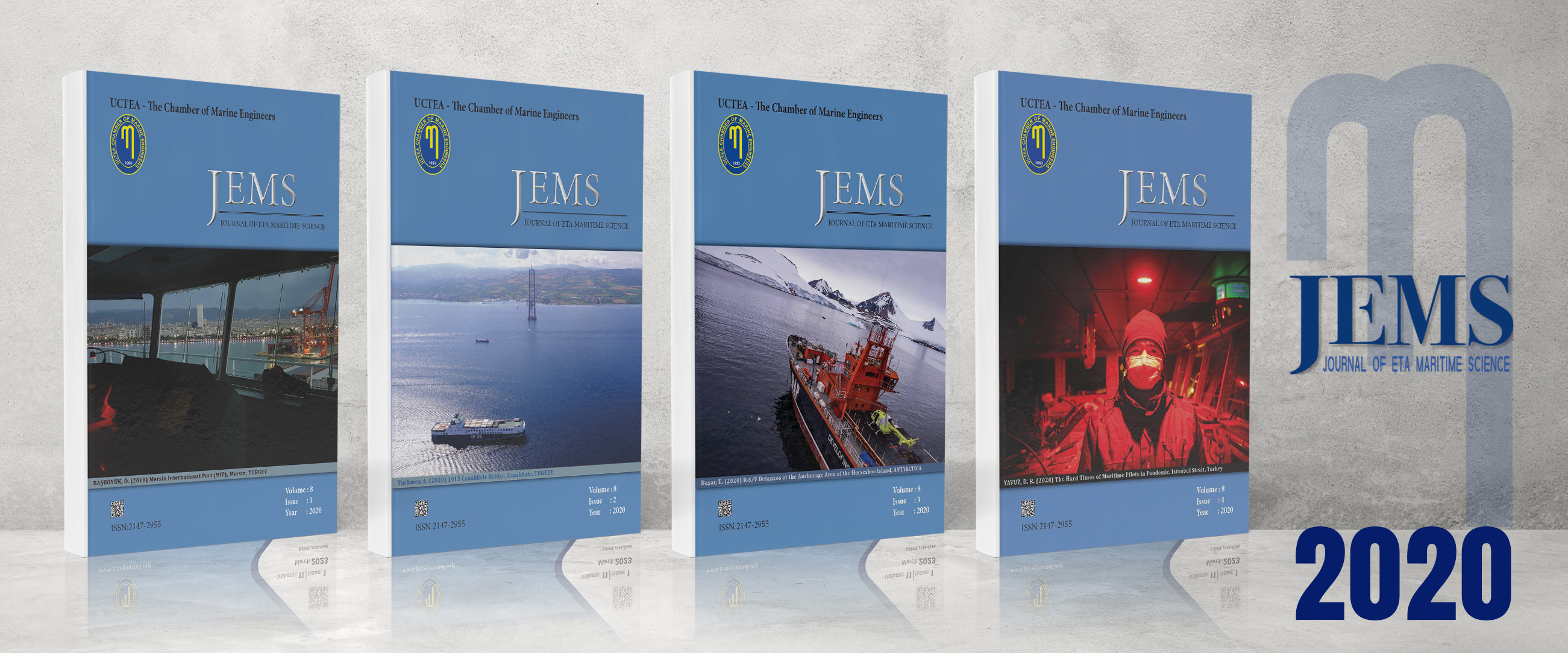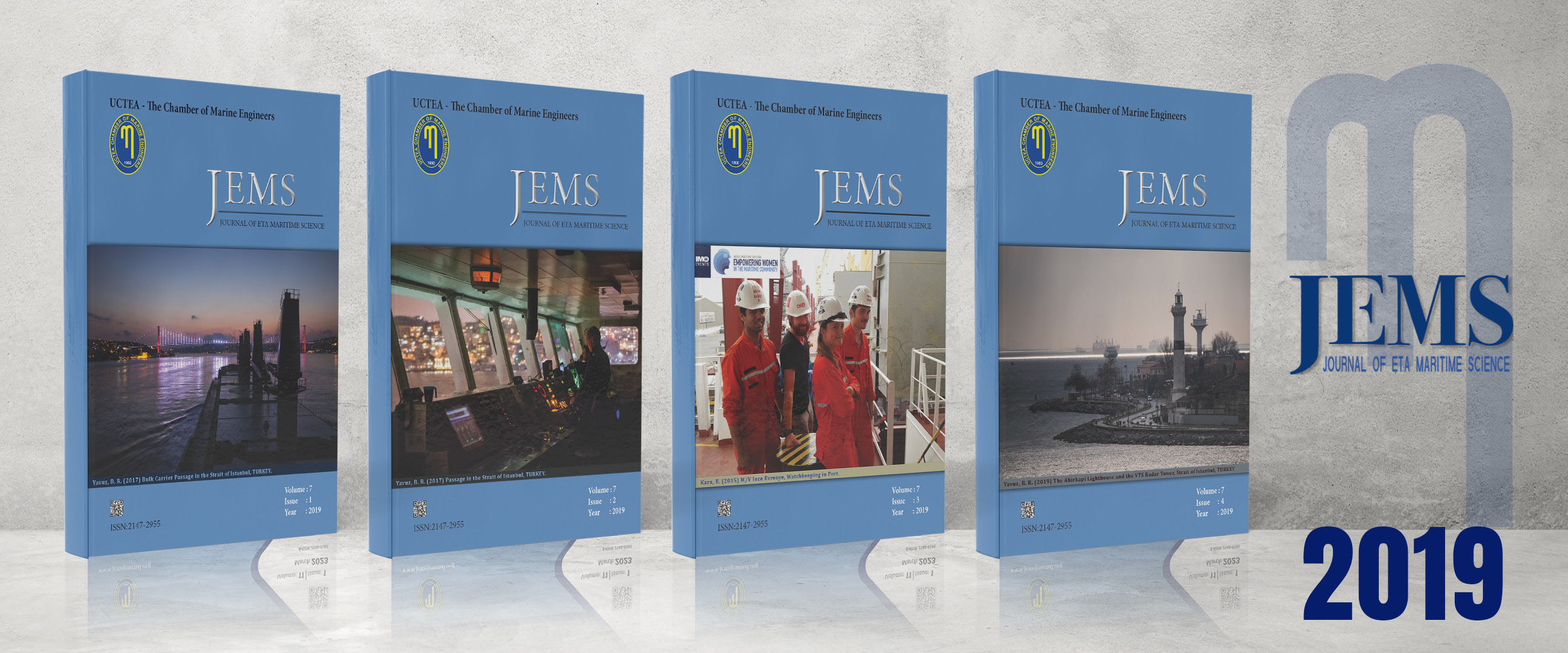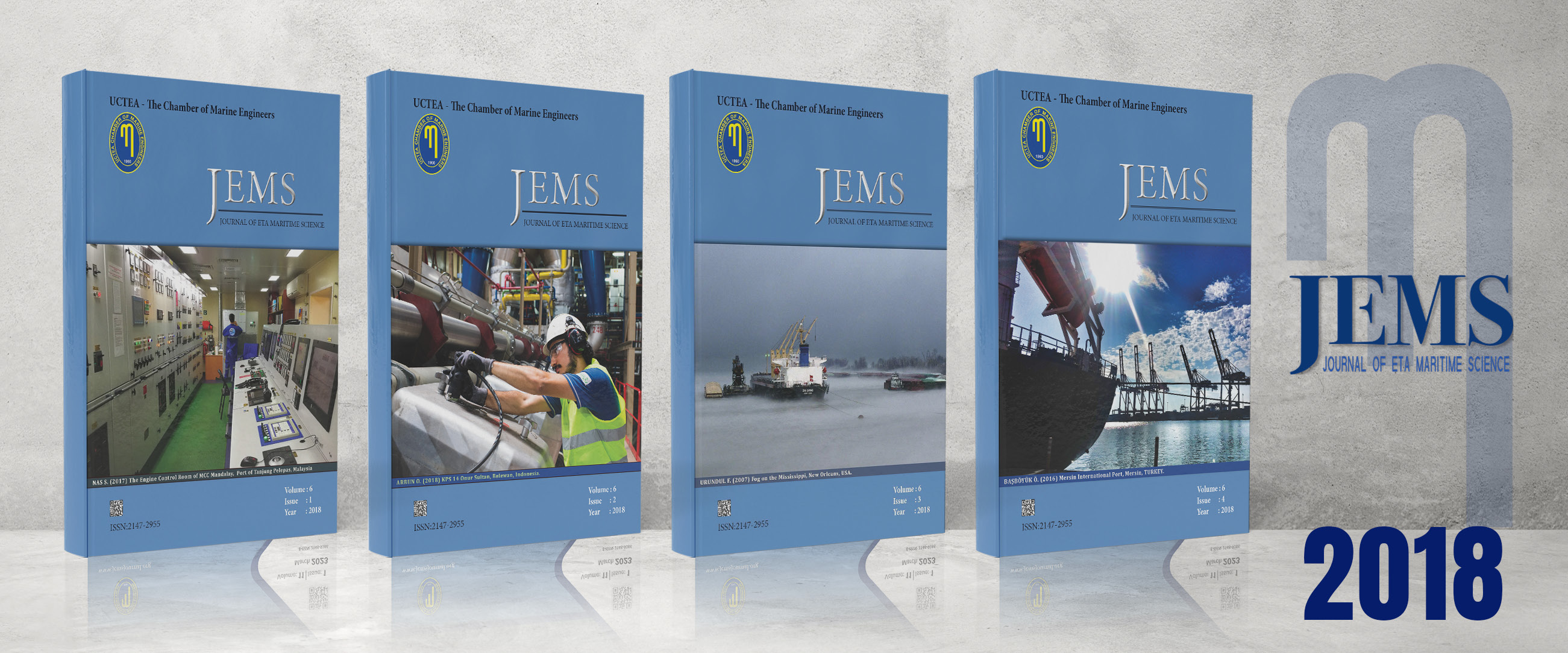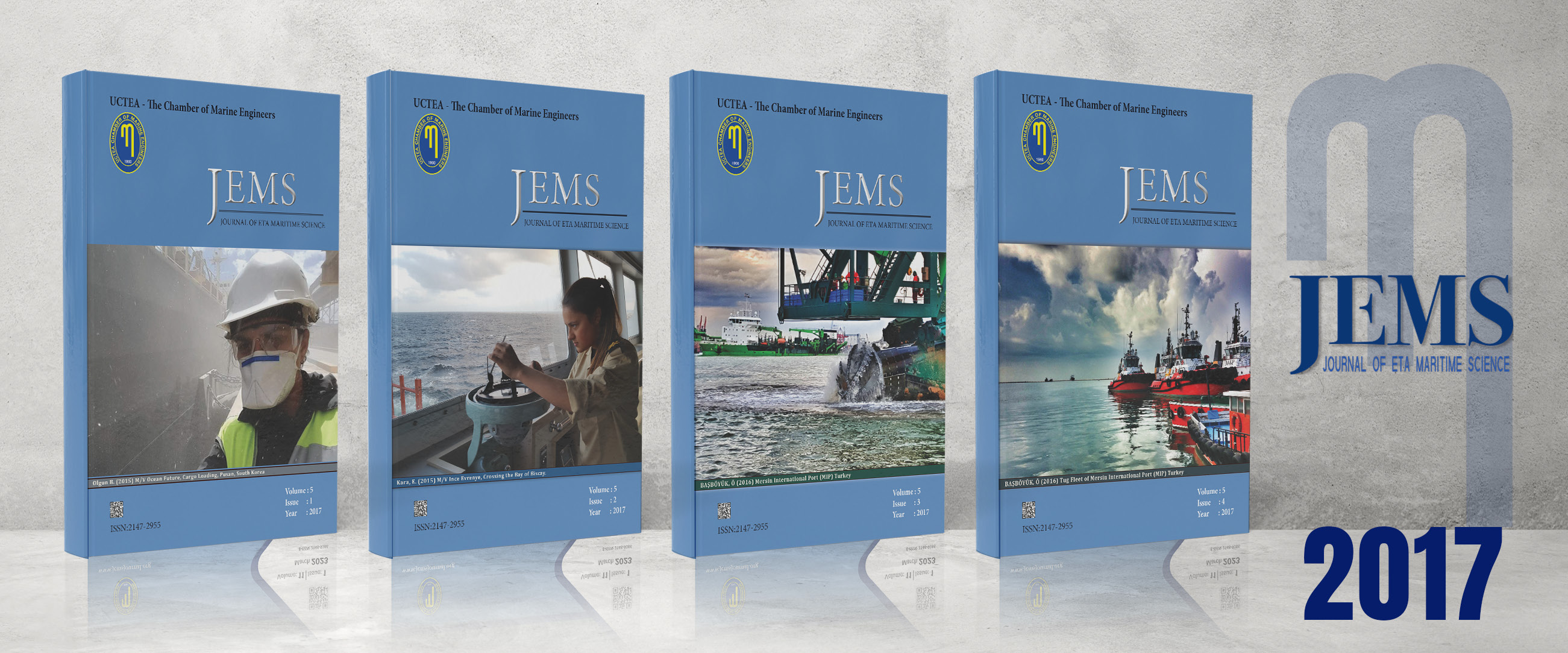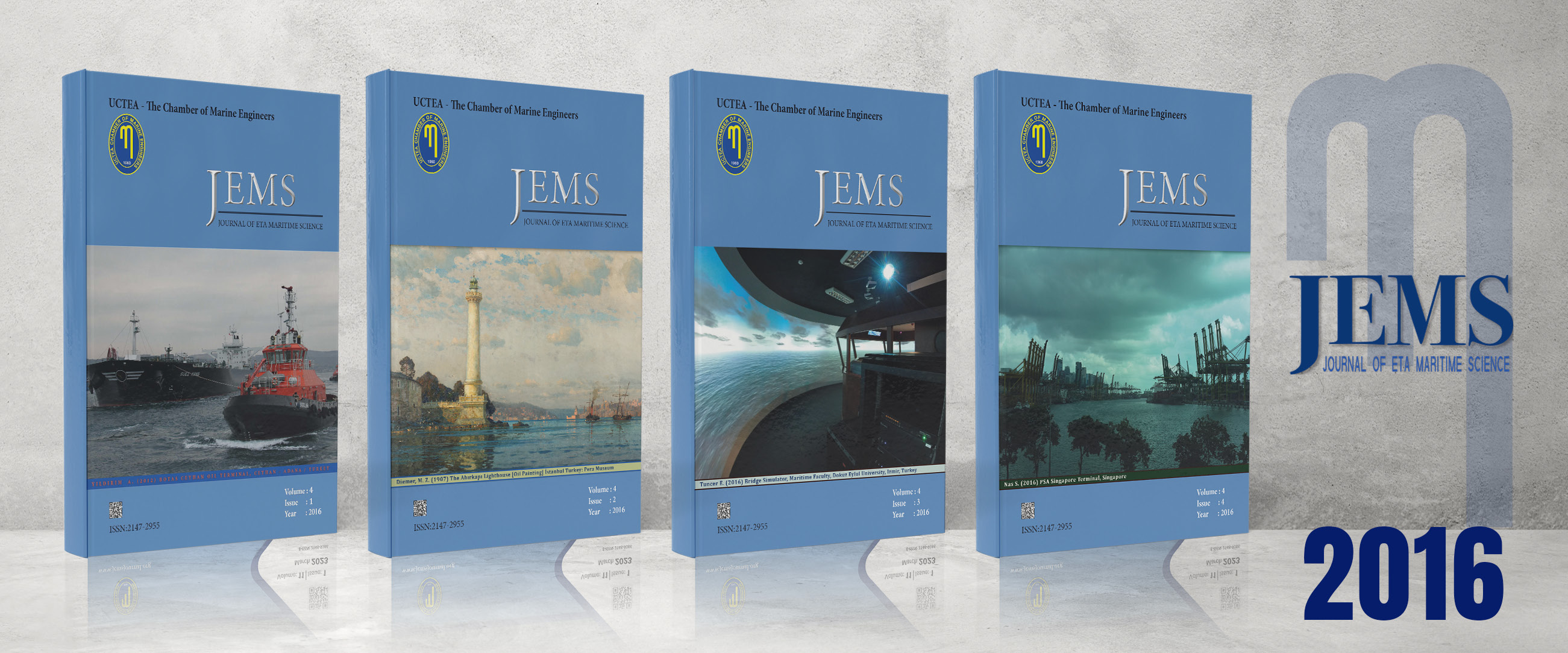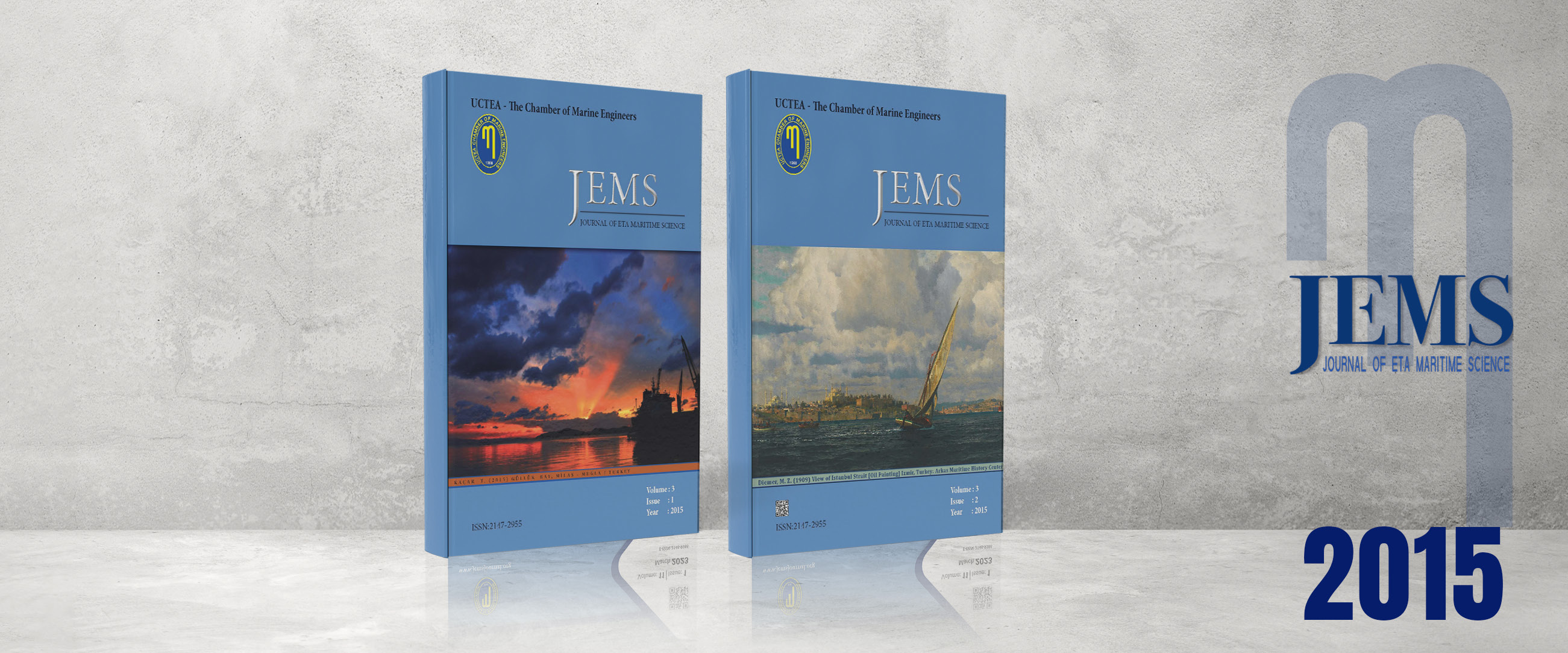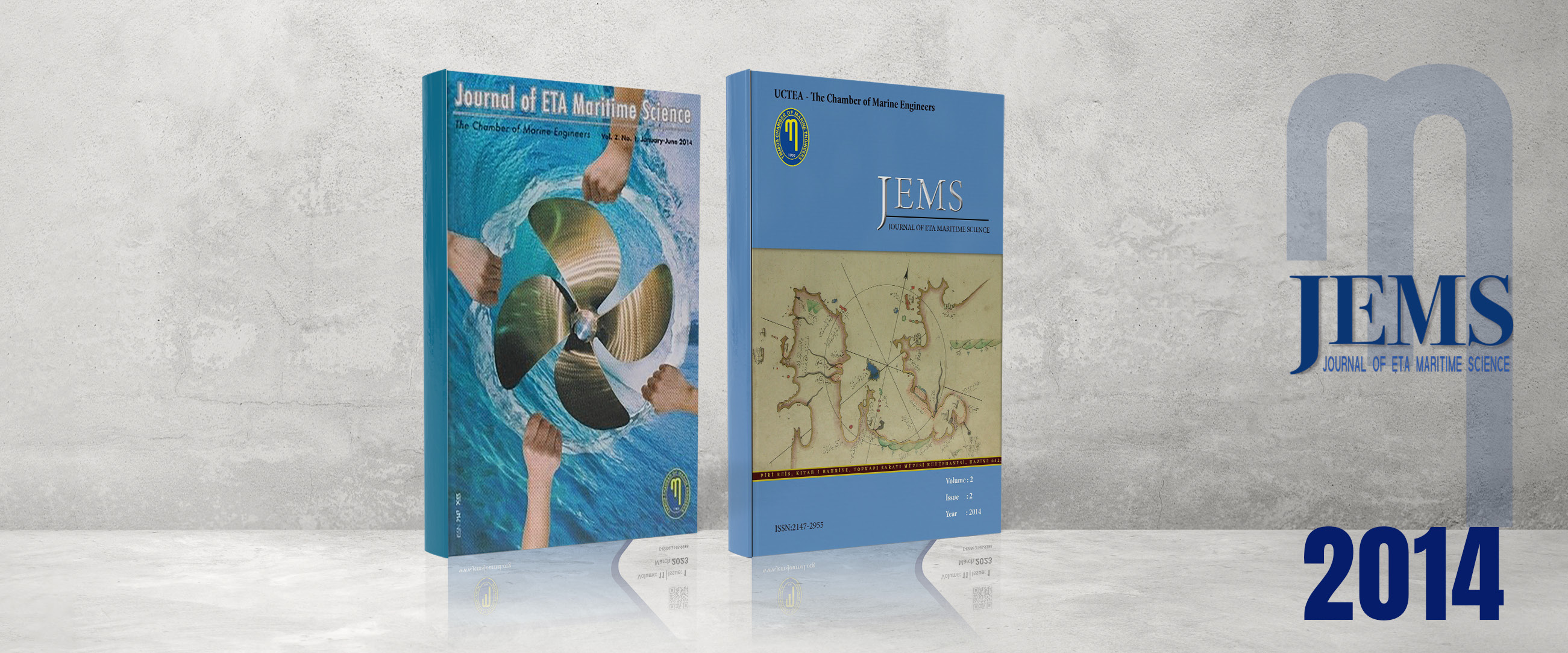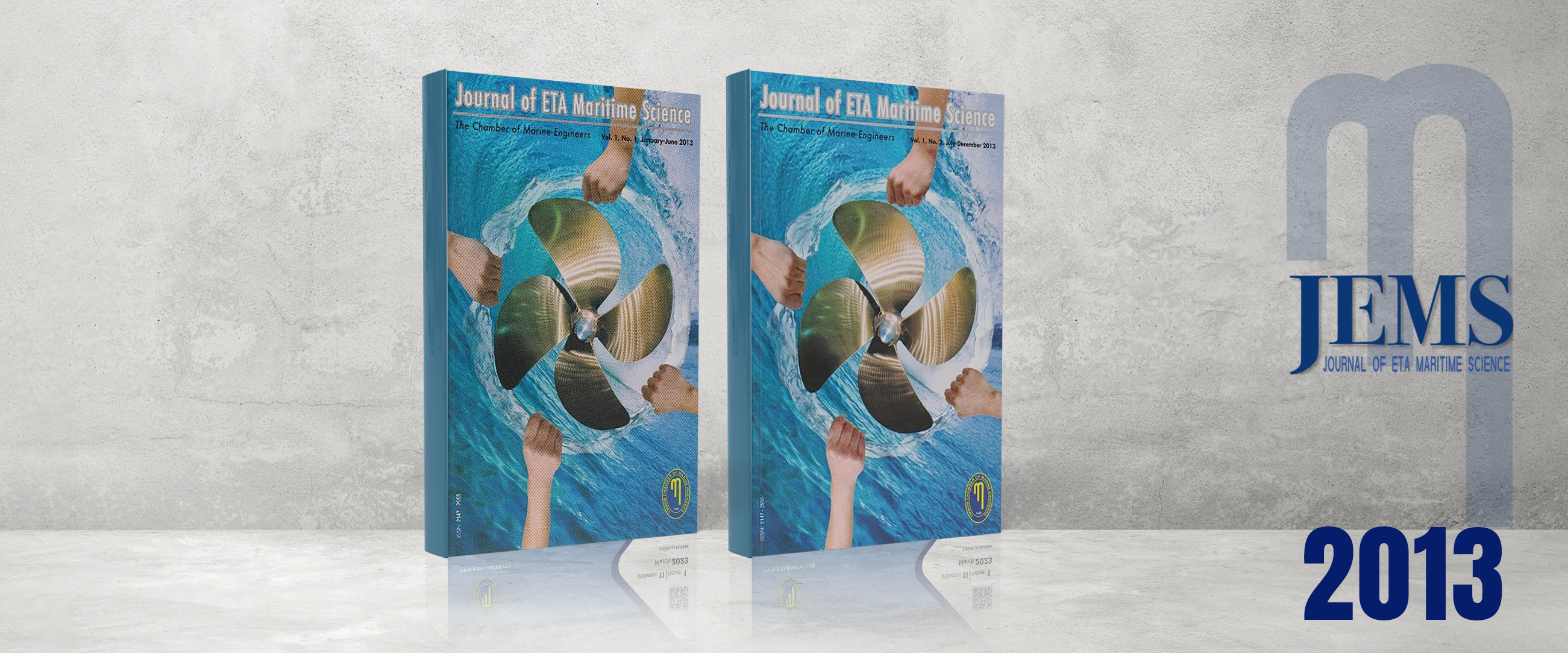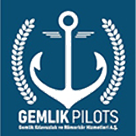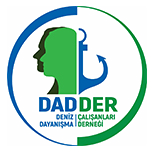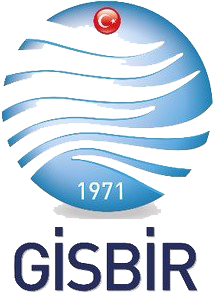

JEMS apply the Creative Commons Attribution NonCommercial 4.0 International Licence to all manuscripts to be published
Ethics Policy
Peer Review, Publication Ethics and Malpractice Statement
Journal of ETA Maritime Science is an independent publication regarding scientific research, and the editor decides its publication policy.
The statement signifies the ethical behaviour of the publisher, the editor, the reviewers and the authors. The ethics statement for JEMS is
based on COPE’s Code of Conduct and Best Practice Guidelines for Journal Editors
and Principles of Transparency and Best Practice in Scholarly Publishing.
Plagiarism and Ethical Misconduct
The Journal of ETA Maritime Science uses plagiarism screening service iThenticate to verify the originality of content submitted before publication.
It is essential that authors avoid all forms of plagiarism and ethical misconduct, as represented below:
Plagiarism: To republish whole or part of a content in another author's publication without attribution.
Fabrication: To publish data and findings/results that do not exist.
Duplication: Using data from another publication; this includes republishing an article in different languages.
Salamisation: Creating multiple publications by abnormally splitting the results of a study.
Data Manipulation/Falsification: Manipulating or deliberately distorting research data to give a false impression.
Use of Large Language Models and Generative AI Tools
AI tools cannot meet the requirements for authorship as they cannot take responsibility for the submitted work. As non-legal entities, they cannot assert the presence or absence of conflicts of interest nor manage copyright and license agreements. Authors who use AI tools in the writing of a manuscript, production of images or graphical elements of the paper, or in the collection and analysis of data, must be transparent about how the AI tool was used and which tool was used. Authors are fully responsible for the content of their manuscript, even those parts produced by an AI tool, and are thus liable for any breach of publication ethics.
This policy is aligned with the COPE Position Statement on Authorship and AI tools. Detailed information can be accessed at: COPE AI Position Statement.
After reviewing the COPE statement, the editors of JEMS have decided that papers should include a statement in a section called Declaration Regarding the Use of AI and AI-Assisted Technologies to inform readers if AI or AI-assisted tools were used in the research or writing process. All authors remain fully responsible for the content of their work.
This declaration does not apply to the use of basic tools for checking grammar, spelling, or references (such as Mendeley, EndNote, Zotero, Grammarly, and similar). If there is nothing to declare, authors are not required to add a statement.
Recommended format for declaration:
During the preparation of this work, the author(s) utilized [NAME OF TOOL(S) USED] to [DESCRIPTION OF HOW THE TOOL(S) WERE UTILIZED AND HOW THE VALIDITY OF THE OUTPUTS WAS EVALUATED]. After carefully reviewing and editing the content as necessary, full responsibility for the publication's content is taken by the author(s). This incorporation of AI tool usage primarily impacted [SPECIFY WHICH ASPECTS OF THE STUDY, ARTICLE CONTENTS, DATA, OR SUPPORTING FILES WERE AFFECTED/GENERATED].
Example:
During the preparation of this work, the author(s) utilized OpenAIs ChatGPT to generate summaries of maritime transportation research articles related to the topic. These summaries were evaluated by comparing them with manually prepared notes by the research team. Upon confirming the accuracy and relevance of the generated content, they were integrated into the literature review section of the manuscript. After carefully reviewing and editing the content as necessary, full responsibility for the publications content is taken by the author(s). This incorporation of AI tool usage primarily impacted the efficiency of the literature review process and the comprehensiveness of the gathered insights.
We disapprove of such unethical practices and of efforts to influence the review process with such practices as gifting authorship, inappropriate acknowledgements, and references in line with the COPE flowcharts.
Submitted manuscripts are subjected to automatic software evaluation for plagiarism and duplicate publication. Authors are obliged to acknowledge if they published study results in whole or in part in the form of abstracts.
A. DUTIES OF PUBLISHER:
Duties of the Publisher
Handling of unethical publishing behaviour
The publisher will take all appropriate measures to modify the article in question, in close cooperation with the editors, in cases of alleged or proven scientific misconduct, fraudulent publication, or plagiarism. This includes the prompt publication of an erratum, disclosure, or retraction of the affected work in the most severe case. Together with the editors, the publisher will take reasonable steps to detect and prevent the publication of articles in which research misconduct occurs and will under no circumstances promote or knowingly allow such abuse to occur.
Editorial Autonomy
JEMS is committed to ensuring the autonomy of editorial decisions without influence from anyone or commercial partners.
Intellectual Property and Copyright
JEMS protects the property and copyright of the articles published in the journal and maintains each article's published version of the record. JEMS provides the integrity and transparency of each published article.
Scientific Misconduct
JEMS's publisher always takes all appropriate measures in respect to fraudulent publication or plagiarism.
B. DUTIES OF EDITORS:
Decision on Publication and Responsibility
The editor of JEMS keeps under control everything in the journal and strives to meet the needs of readers and authors. The editor is also responsible for deciding which articles submitted to the journal should be published and may be guided by the policies subjected to legal requirements regarding libel, copyright infringement, and plagiarism. The editor might discuss with reviewers while making publication decisions. The editor is responsible for the contents and overall quality of the publication. Editor ought to provide a fair and appropriate peer-review process.
Objectivity
Articles that are submitted to the journal are always evaluated without any prejudice.
Confidentiality
The editor must not disclose any information about a submitted article to anyone other than editorial staff, reviewers, and publisher.
Conflicts of Interest and Disclosure
The Editor of JEMS does not allow any conflicts of interest between the parties such as authors, reviewers and editors. Unpublished materials in a submitted article must not be used by anyone without the express written assent of the author.
Fundamental Errors in Published Works
Authors are obliged to notify the journal's editors or publisher immediately and to cooperate with them to correct or retract the article if significant errors or inaccuracies are detected in the published work. If the editors or publisher learn from a third party that a published work contains a material error or inaccuracy, the authors must promptly correct or retract the article or provide the journal editors with evidence of the accuracy of the article.
C. DUTIES OF REVIEWERS:
Evaluation
Reviewers evaluate manuscripts without origin, gender, sexual orientation or political philosophy of the authors. Reviewers also ensure a fair blind peer review of the submitted manuscripts for evaluation.
Confidentiality
All the information relative to submitted articles is kept confidential. The reviewers must not be discussed with others except if authorized by the editor.
Disclosure and Conflict of Interest
The reviewers have no conflict of interest regarding parties such as authors, funders, editors, etc.
Contribution to editor
Reviewers help the editor in making decisions and may also assist the author in improving the manuscript.
Objectivity
They always do the objective judgment evaluation. The reviewers express their views clearly with appropriate supporting arguments.
Acknowledgement of Sources
Reviewers ought to identify a relevant published study that the authors have not cited. Reviewers also call to the editor's attention any substantial similarity or overlap between the manuscript and any other published paper of which they have personal knowledge.
D. DUTIES OF AUTHORS:
Reporting Standards
A submitted manuscript should be original, and the authors ensure that the manuscript has never been published previously in any journal. Data of the research ought to be represented literally in the article. A manuscript ought to include adequate detail and references to allow others to replicate the study.
Originality
The authors who want to submit their study to the journal must ensure that their study is entirely original. The words and sentences getting from the literature should be appropriately cited.
Multiple Publications
Authors should not submit the same study for publishing in any other journals. Simultaneous submission of the same study to more than one journal is unacceptable and constitutes unethical behaviour.
Acknowledgement of Sources
Convenient acknowledgement of the study of others has to be given. Authors ought to cite publications that have been efficient in determining the study. All of the sources that used the process of the study should be remarked.
Authorship of a Paper
Authorship of a paper ought to be limited to those who have made a noteworthy contribution to the study. If others have participated process of the research, they should be listed as contributors. Authorship also includes a corresponding author who is in communication with the editor of a journal. The corresponding author should ensure that all appropriate co-authors are included in a paper.
Disclosure and Conflicts of Interest
All sources of financial support should be disclosed. All authors ought to disclose a meaningful conflict of interest in the process of forming their study.
Appeals and Complaints
Appeal and complaint cases are handled within the scope of COPE guidelines by the Editorial Board of the journal. Appeals should be based on the scientific content of the manuscript. The final decision on the appeal and complaint is made by Editor-in-Chief.
